First UK Muslim Pride to choose joy over rejection
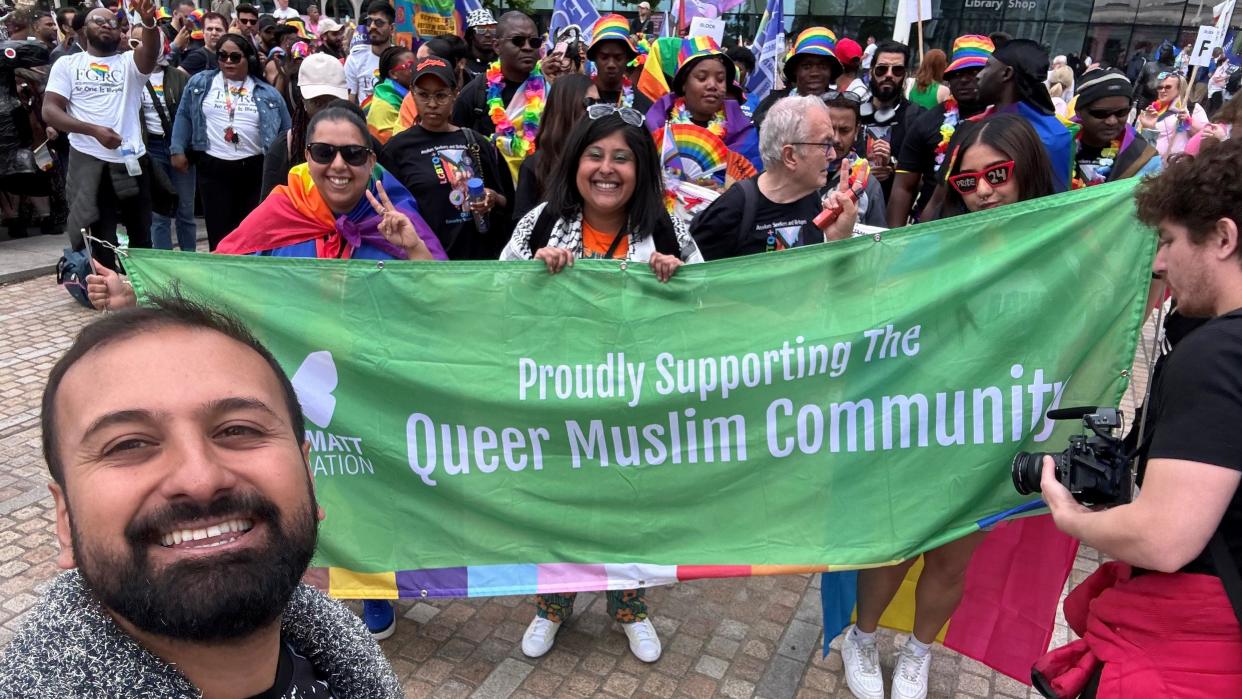
"It's like no Pride I'm ever going to have known before."
Ferhan Khan, a practicing Muslim and non-binary queer man, is looking forward to an "unforgettable experience" at the UK's first Muslim Pride event on Saturday.
"It's going to be filled with people that are just like me and understand me and I don't need to explain myself to them," says the 39-year-old who uses they/them pronouns.
Organised by Muslim charity Imaan LGBTQI+, Muslim Pride 2024 will be a day's celebration of "queer Muslim culture, activism, and history" says the charity, who expect up to 300 people to attend.
Hosted at Queen Mary University of London, the day will include a panel discussion with scholars and activists from the community, workshops on topics from Islamic feminism to the joys and challenges of being out, and entertainment and performances.
The event was originally scheduled to go ahead in 2020 but was cancelled due to the pandemic.
'Struggle and rejection'
Sayyada, one of the organisers, says she is "extremely excited" and "a little bit nervous".
"We've worked so hard for this for so many years and we feel like it'll be a really good celebration of our community," the 26-year-old charity trustee said.
"So often when you talk about these multiply-marginalised communities, the whole story is one of doom and gloom, and struggle and rejection, and that kind of thing. We want Saturday to be a story of celebration and joy and finding community together."
Being LGBTQ+ can be a difficult experience for Muslims around the world, and many feel unable to safely come out.
In some Middle Eastern countries where Islam is most commonly practised, homosexuality is against the law.
Census data for England and Wales in 2021 showed that of the followers of major religions, Muslims were least likely to identify as lesbian, gay, bisexual or another minority sexual orientation (LGB+), but the most likely to identify as transgender.
This is despite the fact that Islam has the youngest average age of the main religions at 27, and the majority of LGB+ people are aged between 16 and 34.
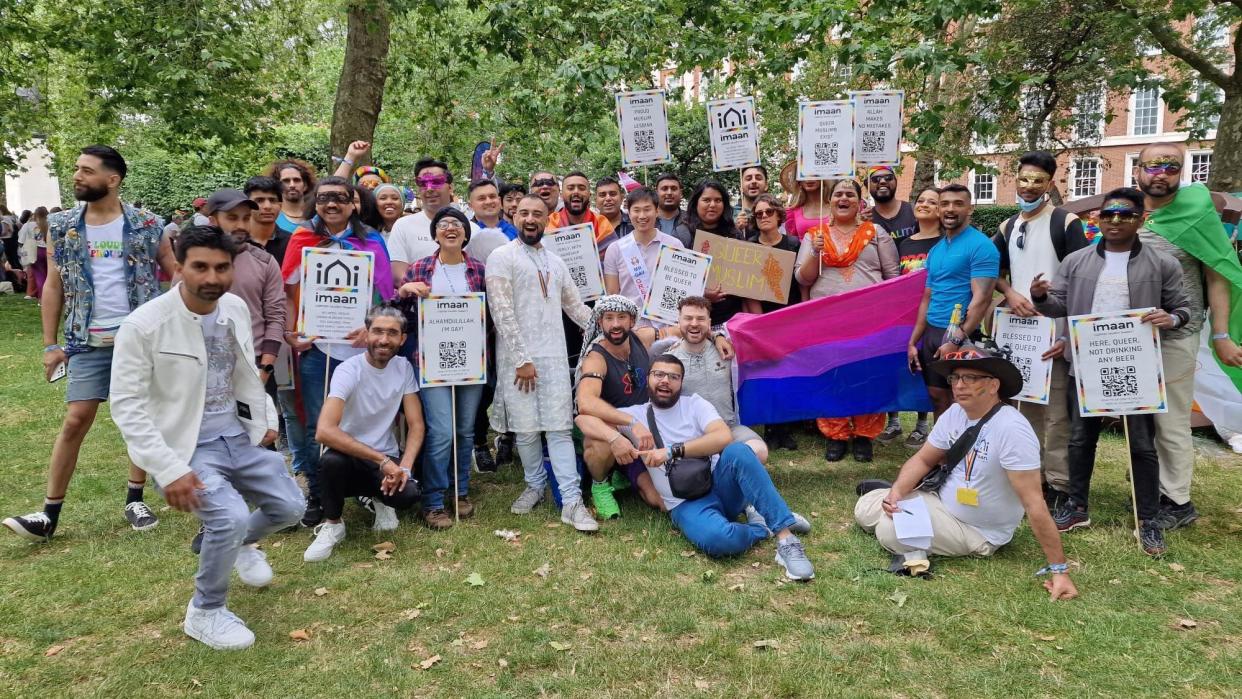
'Wash that make-up off'
Ferhan, who is of mixed Afghan and Panjabi heritage, says growing up their flamboyant nature was not welcomed by their family or the wider Muslim community.
"Unfortunately, what I found was that any queerness, any kind of identity that deviated away from masculinity was being quite firmly oppressed in me.
"I was made to feel ashamed of my sexuality, ashamed of my non-masculine traits, and kind of encouraged to minimise those traits."
When Ferhan was about 15 years old, they came home wearing nail varnish and make-up which prompted an intervention by their family.
Ferhan was told to "go upstairs, wash all that off, and come right back down because we all want to talk to you".
Naked in the bathroom, about to wash with a bottle of cleanser in hand, Ferhan says the next thing they knew one of their brothers-in-law had kicked open the bathroom door, which almost hit them.
"I think he knocked first, and I didn't open it, I said 'I'm busy, I'm still doing my routine'," Ferhan recalls.
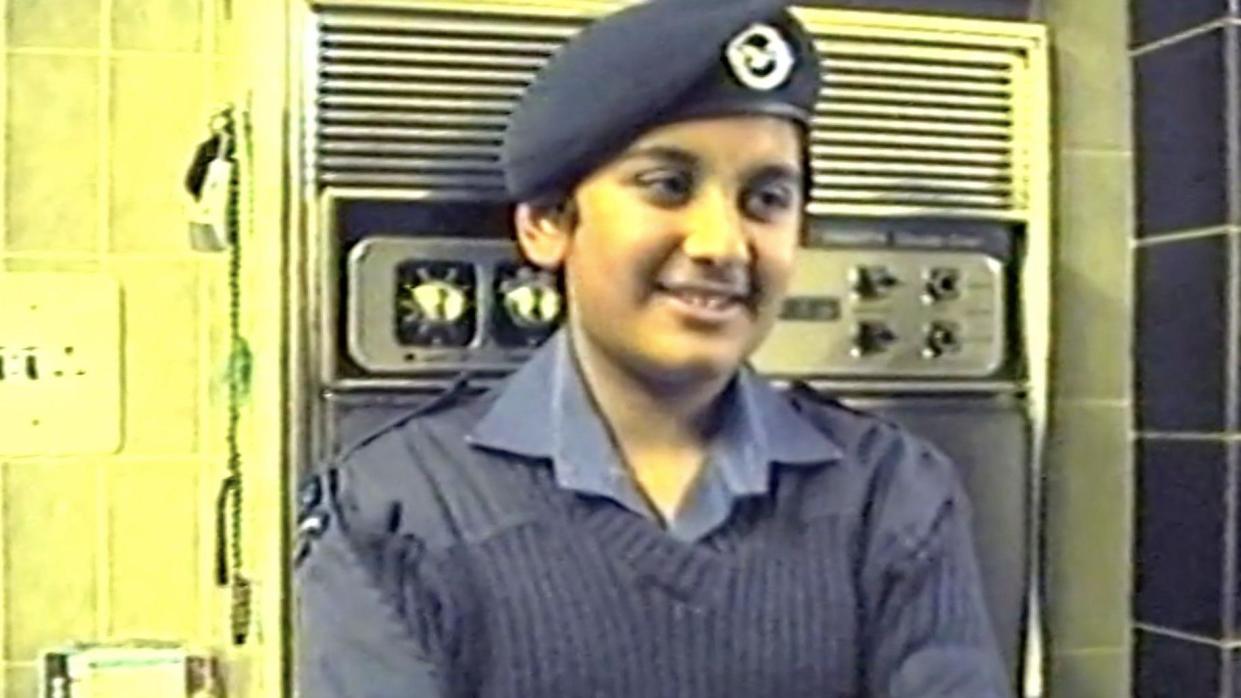
"My sister burst in behind him and grabbed that bottle of cleanser and said, 'What are you doing with this? This is for girls', and then she threw it hard against the ground and with such force that the bottle broke."
After going downstairs, Ferhan was told to sit down in front of the family who sat with crossed arms and received a "lecture" from the brother-in-law. "All I remember was him saying that I was 'raping this house'," they say.
Despite remaining tensions, Ferhan does have a relationship with their parents and stayed with them this week for Muslim festival Eid ul-Adha.
Ferhan says their mother said she had enjoyed "the best Eid ever" after meeting and cooking for their queer friends, who she loved "to death".
Muslim Pride is important, Ferhan says, in challenging the assumption that the faith is "inherently queer-phobic".
"This is an assumption that's not necessarily based on fact, because if you read the parts of the Quran that supposedly condemn homosexuality, it's not as clear cut.
"And what this serves to do is actually invalidate the notion that you can be both queer and Muslim and for a lot of queer Muslims, this is a difficult one because they might want to retain their faith.
"They might want to simply be in a space where they are validated for being both queer and Muslim, and that's what Imaan is doing, is serving up a space where you can be... validated for that choice."
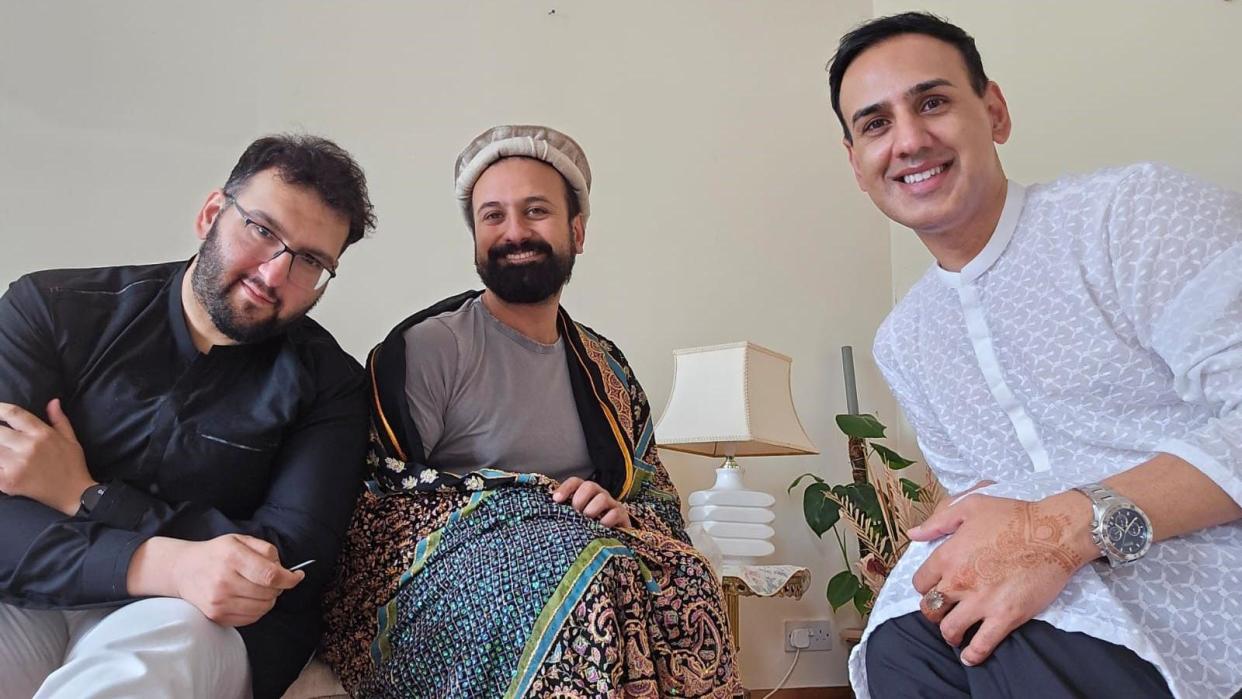
Imaan LGBTQI+ has supported Muslims for more than 20 years and has been attending Pride in London since 2003.
It offers monthly social meetings, iftars (fast-breaking meals during Ramadan), communal prayers, therapy, and workshops on the Quran.
"We [LGBTQ+ Muslims] often lose our connection to those spaces [mosques] and they're so important," Sayyada says, as she describes one person who was brought to tears after approaching the charity.
"We had one person who stopped going to mosque... we gave the call to prayer and then we prayed together, and after that they were in tears because they said it had been so long since they had chosen to go into a mosque or prayer space and felt comfortable and happy in it."
She says Muslim Pride is important in increasing the visibility of LGBTQ+ Muslims, as many grow up "thinking they're the only one when objectively, statistically, realistically they are not".
"That loneliness is really profound and a very real emotion that they have, and then that ties into social isolation, you don't connect with your peers, you get depressed," Sayyada - who is Lesbian - says.
"And it also has a knock on effect on everyone around them when that person does come out or is suspected to be queer, it's shocking and unusual and they have no frame of reference to compare it to."
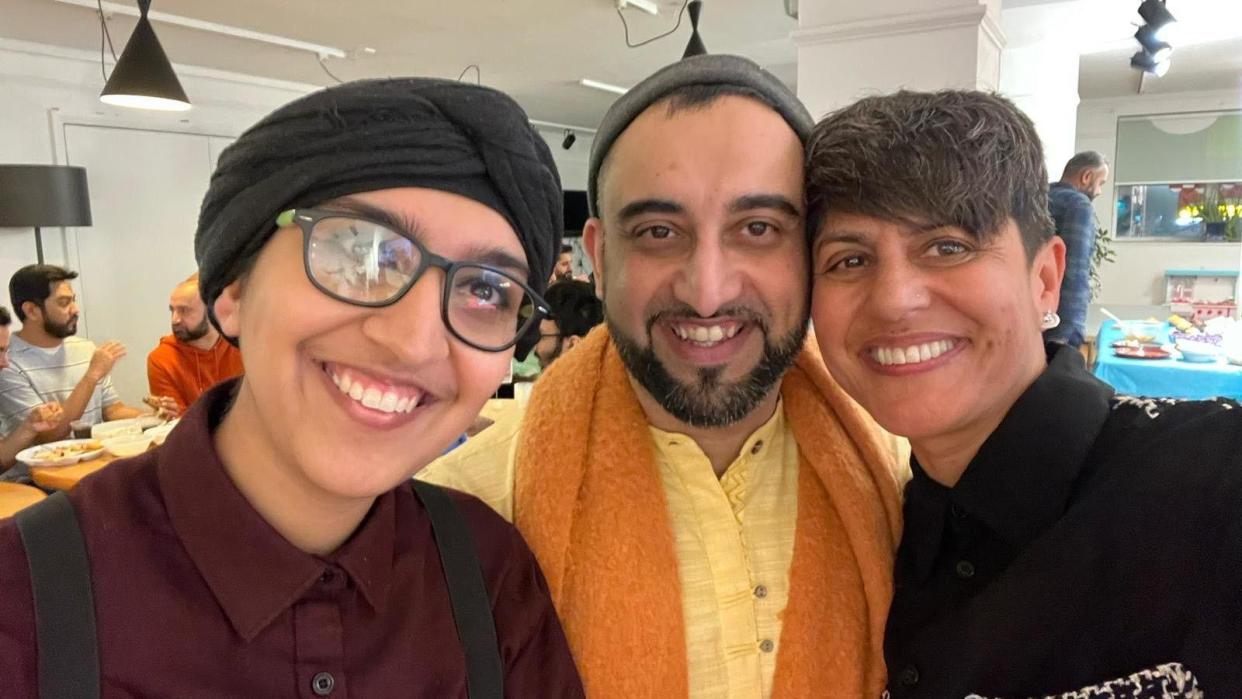
Unlike many other prides, Muslim Pride will be behind closed doors, something that's important to the organisers at this stage.
"The primary goal isn't to go through the streets and to have everyone else see us," Sayyada says.
"For some of our members their access to traditional prides is also limited because of that, because if you've ever been to a pride parade, it's impossible to escape people photographing you or taking videos.
"Even when the chance of being identified is low, that anxiety is quite real for people."
There is also the added concern for LGBT+ Muslim students from abroad who have scholarships from governments or institutions in their home countries and being outed could impact the status of these, Sayyada says.
"If somebody is dependent on someone else for housing or for support to continue studying or to look for work, then that can be used to keep them in the closet or manipulate what they can or can't do. We see that kind of financial abuse very often.
"A lot of people live with their families still and a lot of people's concern about being outed is if I'm out, I might not have anywhere to stay."
